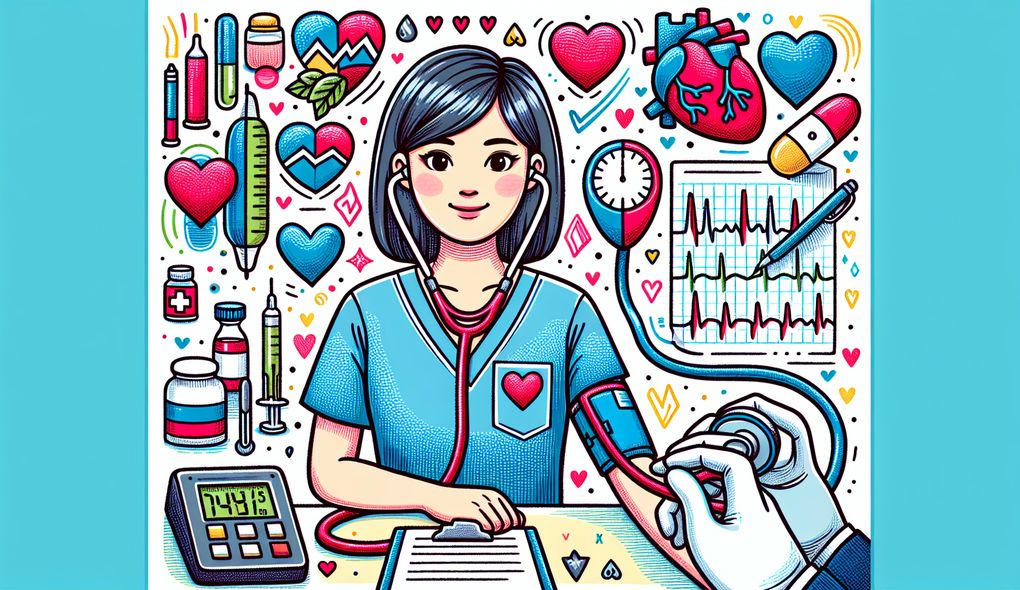What are some common challenges or ethical dilemmas you may face as a Cardiovascular Nurse Practitioner? How do you approach these situations?
SENIOR LEVEL

Sample answer to the question:
As a Cardiovascular Nurse Practitioner, one of the common challenges I may face is dealing with ethical dilemmas related to patient confidentiality and privacy. For example, if a patient with cardiovascular disease discloses sensitive information about their health to me, I need to carefully balance their right to privacy with the need to share information with other healthcare providers involved in their care. To approach these situations, I adhere to the ethical principles of autonomy, beneficence, and justice. I prioritize open communication with my patients, ensuring their informed consent and involving them in decision-making processes. I also collaborate closely with other healthcare professionals, maintaining clear lines of communication to protect patient privacy while ensuring comprehensive care.
Here is a more solid answer:
As a Cardiovascular Nurse Practitioner, I often encounter ethical dilemmas and challenges in my practice. One common dilemma involves balancing patient autonomy and beneficence. For instance, I may need to navigate situations where a patient refuses necessary cardiac interventions for personal or cultural reasons. In such cases, I approach the situation by engaging the patient in open and honest conversations, respecting their autonomy while ensuring they understand the potential risks and benefits of different treatment options. I also collaborate closely with the multidisciplinary healthcare team, including cardiologists and social workers, to explore alternative solutions and promote shared decision-making. Additionally, I prioritize ongoing education and staying updated on ethical guidelines and best practices to ensure I make well-informed decisions in complex situations.
Why is this a more solid answer?
The solid answer provides specific examples of ethical dilemmas related to patient autonomy and beneficence. It demonstrates the candidate's clinical skills by discussing the need for cardiac interventions and their approach to shared decision-making. However, the answer could be further improved by including additional details about collaboration and the use of ethical frameworks or guidelines to guide decision-making.
An example of a exceptional answer:
As a seasoned Cardiovascular Nurse Practitioner, I have faced and successfully navigated various ethical challenges and dilemmas throughout my career. One significant challenge I have encountered is related to resource allocation in the face of limited healthcare resources. For instance, when there is a shortage of cardiac medications or devices, it becomes crucial to ensure equitable distribution based on patient need and clinical urgency. In these situations, I actively participate in interdisciplinary discussions and ethics committees to develop fair allocation criteria that align with established ethical principles. I advocate for transparent decision-making processes that involve key stakeholders, including patients, families, and healthcare providers. By including diverse perspectives and engaging in ethical debates, I strive to promote justice and balance the needs of individual patients with the larger patient population. Additionally, I continuously educate myself on evolving ethical issues in cardiology care and participate in professional development activities to enhance my knowledge and skills in addressing ethical challenges effectively.
Why is this an exceptional answer?
The exceptional answer provides a comprehensive understanding of the ethical challenges faced by a Cardiovascular Nurse Practitioner, including resource allocation. It demonstrates the candidate's leadership skills, extensive experience, and commitment to ethical decision-making. The answer also highlights active participation in interdisciplinary discussions and continuous education to stay updated on ethical issues. One possible area for improvement could be providing specific examples or scenarios related to resource allocation ethics in cardiology.
How to prepare for this question:
- Familiarize yourself with ethical frameworks and guidelines specifically related to cardiology care, such as those provided by professional nursing organizations.
- Reflect on past experiences where you faced ethical dilemmas in your cardiology practice and think about how you approached and resolved them.
- Stay updated on current research findings and developments in cardiology ethics to enhance your knowledge and decision-making skills.
- Consider seeking opportunities for interdisciplinary collaboration and participation in ethics committees or discussions to gain a broader perspective on ethical challenges and solutions in cardiology.
What are interviewers evaluating with this question?
- Clinical skills in cardiology care
- Communication skills
- Ethical decision-making
- Collaboration and teamwork

